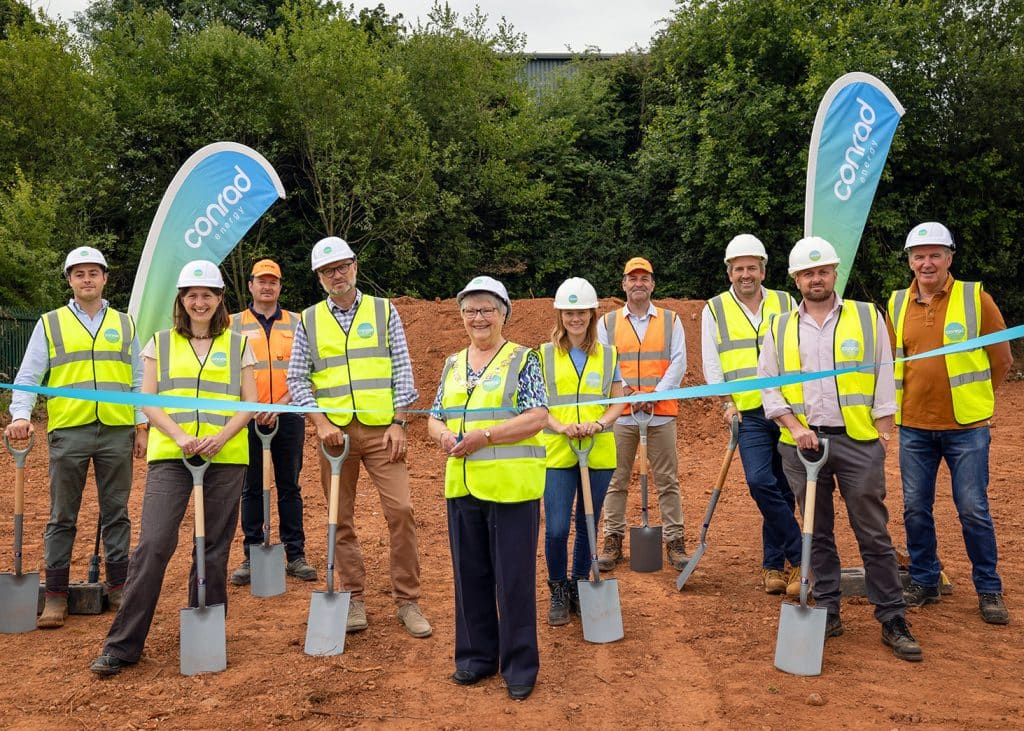
Conrad started construction of a 6MW battery in August (pictured). Image: Conrad Energy.
Independent power producer Conrad Energy has secured planning permission for a 15MW battery energy storage system (BESS) in Somerset.
The BESS, which will be developed in Watchet, Somerset, will enhance the company’s portfolio in the south west of the UK. The BESS project will be used to store renewable energy for flexible purposes for the grid.
The facility, which is scheduled to be operational by the end of 2024, will have a total of 15 energy storage containers. Conrad Energy is also set to implement measures to demonstrate a 15.37% gain in habitat units and a 10.4% gain in hedgerow units.
This will see the project include nearly 1,000 square metres of natural woodland screening and 47m of new indigenous hedgerow planting.
“Our investment in the south west continues with a strong start to 2023 as we build our pipeline of diverse storage and renewable development projects,” said George Hall, development manager at Conrad Energy.
“We’re committed to ensuring access to lower carbon energy for all, and the plant at Watchet is a tremendous step forward in making the most of energy generated by renewable sources.”
The Watchet BESS project adds to the firm’s growing portfolio, in Somerset. Conrad last year confirmed it had gained planning permission for a 50MW two-hour BESS project in North Petherton, Somerset. This was set to be the biggest BESS in its portfolio.
Conrad recently signed an agreement to receive £85 million in funding from Close Brothers Leasing to develop eight BESS projects across the UK. The first to gain support from this funding was an already operational 40MW BESS facility in Bedfordshire.
Responding to this funding, Steven Hardman, CEO at Conrad Energy, commented: “Conrad Energy’s portfolio of battery storage developments provides significant stability to the grid and balances intermittent generation from renewables, increasing energy security and playing a vital role in the UK’s energy transition to a lower carbon economy.”
